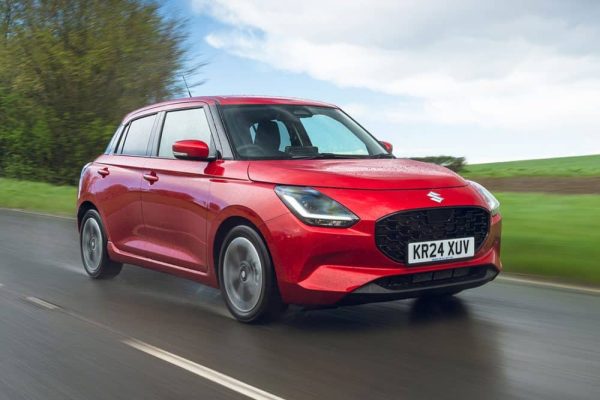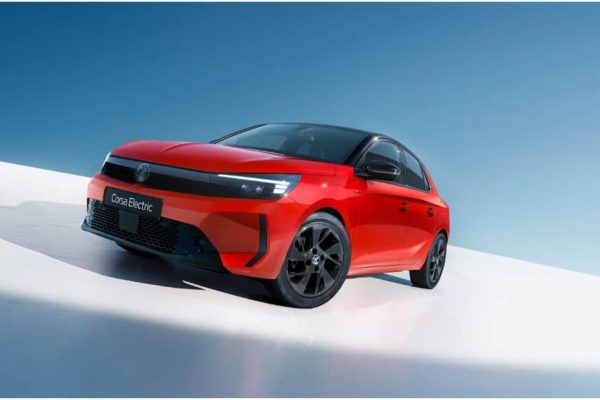A DRIVE towards a UK electric infrastructure, with compulsory provision of electric vehicle charge points at motorway services and large filling stations announced in the Queen’s Speech, has been welcomed by the industry.
The clause in the Automated and Electric Vehicles Bill announced at the opening of Parliament allows the Government “to require the installation of charge points for electric vehicles at motorway service areas and large fuel retailers, and to require a set of common technical and operational standards.
“This will ensure that charge points are convenient to access and work seamlessly right across the UK.”
Graham Armitage, partner and co-lead of mobility ecosystem at KPMG UK, said: “The mobility ecosystem – how people and goods get from A to B – will be fundamentally disrupted by the development of electric vehicles, autonomous vehicles and Mobility as a Service.
“The bill seeks to address key factors which could delay the wider roll out of these new technologies. While requiring the installation of charge points at motorway service areas and large fuel retailers only helps with certain types of journeys, charging at home and at workplaces is equally as important.
Appointed Representative Opportunities with Wessex Fleet
Have you thought about growing your broker business? Are you looking for opportunities for growth? Then why not consider joining Wessex Fleet as an Appointed Representative?
Keeping you on the move with leasing solutions tailored to your needs
Leasys is the proud Contract Hire partner of the Stellantis brands, offering mobility solutions from medium and long-term rentals to management systems for company fleets.We work with Brokers to support all their customers requirements.
Accelerate your business with QV Systems & Leaselink
Unlock unparalleled efficiency in vehicle procurement with QV Systems’ Accelerate, now seamlessly integrated with Ebbon Automotive’s Leaselink. Tailored for brokers and funders, this integration streamlines the entire process from quote to delivery, empowering you to effortlessly source and order vehicles for your clients.
“The intention for a set of common technical and operational standards represents a substantial move forward in terms of convenient access to a national charging network.
“Additionally, the planned extension of compulsory motor vehicle insurance to cover the use of automated vehicles also addresses a key part of the necessary regulation to enable the use of these vehicles on UK roads.
“In the UK, we have structural advantages that should allow us to be early adopters of new mobility technologies. The economic and social benefit of connected and autonomous vehicles in the UK alone could be worth over £50 billion per year by 2030, and the opportunity to make the UK a key global hub for a new mobility ecosystem is enormous.
“But, success will only come through an unprecedented degree of collaboration across government and business, so this opportunity needs to be grasped quickly, and the new bill is certainly a step in the right direction.”
Under plans for ‘Building a stronger economy’, the Bill was introduced as the introduction of legislation “to ensure the United Kingdom remains a world leader in new industries, including electric cars.”
The purpose of the Bill is to:
- Allow innovation to flourish and ensure the next wave of self-driving (automated) technology is invented, designed and operated safely in the UK.
- Ensure we retain our position as a global leader in the market for electric vehicles by improving our national charging and hydrogen refuelling infrastructure.
The main benefits of the Bill would be:
- To put the UK at the forefront of automated vehicle ownership and use and maintain our position as one of the best places to research and develop modern transport technologies.
- To ensure a world-class infrastructure which supports the rapid adoption and use of electric vehicles by consumers as more mass market models become available, helping improve air quality.
- This supports the ambitions set out in the manifesto for the UK to “lead the world in electric vehicle technology and use”, with “almost every car and van to be zero emission by 2050”, and to continue preparing the UK for automated vehicles.
Key facts presented to Parliament
- Official research indicates that the market for automated vehicles in the UK will be worth £28 billion by 2035. The Government is investing over £200 million in research and testing infrastructure to ensure the UK remains one of the best places to develop this technology.
- Connected and Automated Vehicle technologies have the potential to greatly reduce the occurrence of road traffic collisions. In 2015 85.7% of reported collisions that caused personal injury accidents in Great Britain involved human error.
- There are now over 100,000 vehicles in the UK fleet that have benefited from the Government Plug-in Car Grant for electric vehicles. More than 13,800 ultra low emission vehicles were registered in the first quarter of 2017, an increase of 17% from the same period in 2016.
- The Government has committed to spend £600 million during this Parliament to support the growing market for ultra-low emission vehicles, and a further £270 million funding was announced at Autumn Statement 2016.
- The UK is the largest market for electric vehicles in the EU and a global leader in electric vehicles’ development and manufacture – 1 in 5 electric cars sold in the EU in 2016 was made in the UK.


















